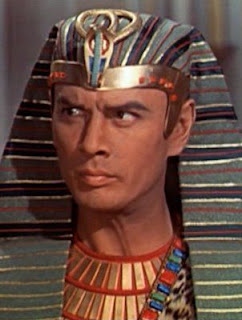Stay tuned! God is faithful.
The Twelfth Sunday after Pentecost
Proper 16 - Year A
Exodus 1:8-2:10
Now a new king arose over
Egypt,
who did not know Joseph....
 How
quickly we forget. Unlike other members
of the animal kingdom, human beings carry around nearly all the information
necessary to be a member of their species in their stories and not in
their genes. Activities which we
perform by reflex or at the bidding of our hormones are precious few. Instead, our children go to school. They learn at their parents’ or grandparents’
knee. They read from books. Stories may be supple or rigid. Stories can evolve and merge with the stories
of neighbours. They can be transformed
in the retelling. Rigid stories tend to
be fragile. National myths can be
destructive. And yet, civilizations can
and do collapse when the cultural contents of the human story are
forgotten. Skip a generation and you
will take a step way back into time.
How
quickly we forget. Unlike other members
of the animal kingdom, human beings carry around nearly all the information
necessary to be a member of their species in their stories and not in
their genes. Activities which we
perform by reflex or at the bidding of our hormones are precious few. Instead, our children go to school. They learn at their parents’ or grandparents’
knee. They read from books. Stories may be supple or rigid. Stories can evolve and merge with the stories
of neighbours. They can be transformed
in the retelling. Rigid stories tend to
be fragile. National myths can be
destructive. And yet, civilizations can
and do collapse when the cultural contents of the human story are
forgotten. Skip a generation and you
will take a step way back into time.
The
scenario described at the beginning of the stories concerns the new Egyptian
king who, by malevolence or ignorance, “forgets” the role which God, Joseph
and the Hebrews had played in the preservation of Egypt during the years of famine. By intention or accident, the story of Egypt has
a chapter ripped from its book. Fellow
citizens – artisans and laborers – established residents of great Egyptian cities
became, in a moment, a despised minority.
We don’t need to look much beyond the 20th and 21st
centuries to find analogs for this process within living memory.
For
the readers of the Book of Exodus, be they Christian or Jewish, there can be no
question as to the outcome. The descendants
of Abraham living in Egypt have a purpose and a destiny that will not be cut
off. They are part of a larger and more important narrative than
the one by which Pharaoh hopes to purify his kingdom. At issue, here again, is the overarching
question:
How
will God remain faithful to his promises to Abraham
to
bless his descendants and, through them, the entire world?
There
is no other question in Exodus.
Frankly, there is no other question in the Gospels or the Acts of the
Apostles. We remain glued to the page
because the risks are many and, as is the case throughout the Old and New
Testaments, human agents are used to propel the Promise through the ages. Patriarchs, prophets and saints need to say “yes”
and we don’t know if they will. The
promise may even need to be placed within a little basket of reeds daubed with
pitch and bitumen and set out into the reedy edges of a great river. And yes – it all must matter to you, who are praying
for your little churches and saying “yes” to your part in the story, who pray that your children remain part of the same narrative, who wonder how God’s
people will ever find their voice in a world grown suddenly more unstable and
chaotic.
Stay tuned! Hold on to the handrails! You are part of this
story. It's never been one for the
faint-hearted.

